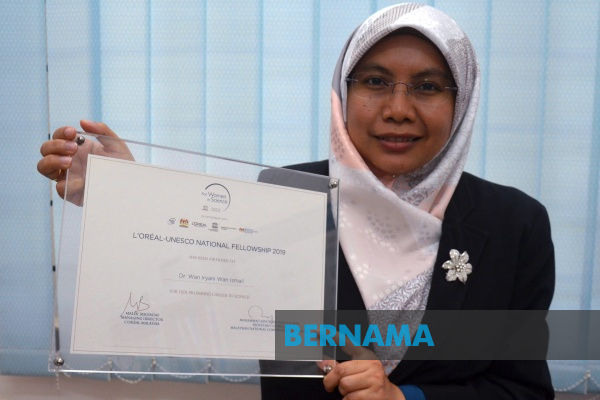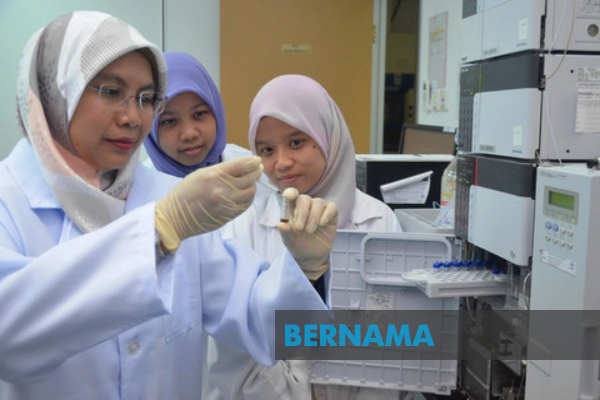Scientists create supplement from honey to tackle obesity

KUALA NERUS, Nov 3 -- It is known throughout the ages that honey is a natural food which is beneficial to health.
But many are hesitant to take honey to augment their diet due to the dumping of sugar-laced honey in the market which could adversely impact on health.
As such, Universiti Malaysia Terengganu (UMT) scientist, associate professor Dr Wan Iryani Wan Ismail had taken the initiative to conduct a research and development (R&D) programme on honey and produced a supplement in the form of capsules containing original honey to tackle obesity.
The UMT Faculty of Science and Marine Environment lecturer said her research since 10 years ago found that a person could control his appetite by only taking natural honey to solve the problem of obesity.
‘’Honey is easy to get, cheap and has no side effect. It contains a complete nutrition to provide energy to the body. But some question it, saying the honey is sweet and they developed diabetes after consuming honey. But the honey (they consumed) were fake!
‘’We have also experimented on laboratory mice. Those given original honey became slimmer and healthy while those given fake honey became fat and had many diseases,’’ said Wan Iryani, who used a machine to test the genuineness and quality of honey, to differentiate between original honey and fakes.

Through the R&D too, Wan Iryani had identified three methods to differentiate between original and fake honey, other than laboratory and machine testings, namely, through taste, smell and sight which the man in the street could utilise.
‘’Original honey has a special smell akin to plants and flowers while fake honey smells of liquid sugar, pungent and exceedingly sweet. The colour of fake honey is also more transparent and clear not like original honey which is more murky as it contains active materials,’’ she said.
She said her research covered all types of honey found in Malaysia including stingless bee honey and ‘tualang’ bee honey.
The research on honey had brought luck to Wan Iryani when she received the L’Oreal - UNESCO Fellowship For Women In Science (FWIS) award recently, recognising her effort in producing an innovative and beneficial study for society.
Wan Iryani, together with two other local women scientists who received the award, were given a RM30,000 grant to continue their project.
She said the grant would be used to test the original honey supplement on humans and identify the correct dosage to control obesity.
‘’We will give the supplement to individuals with excess body weights and we will test how the honey reacts in the human body. I want to study how the honey, when consumed, stimulates our fat cells, no one knows this.
‘’We will also determine how the supplement dosage is to be taken, whether three times a day, once a day or others,’’ she said, adding that the study on humans would start in January 2020.
The original honey supplement was expected to be available in the market next year and several companies had offered to market the product, she added.
-- BERNAMA
HealthEdge
EXCLUSIVE

Pet Vaccination, Public Awareness And Surveillance Key Towards Rabies-free Southeast Asia - Experts
KUCHING, Dec 11 (Bernama) -- The goal of making Southeast Asia free from human rabies can be achieved through a total understanding of the disease, how it can be prevented and responsible pet ownership among communities, say experts.
read more ››IN FOCUS

TAVI KAEDAH BAIK PULIH INJAP JANTUNG TANPA PEMBEDAHAN



